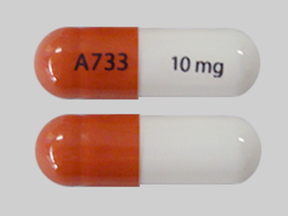Juxtapid and Alcohol/Food Interactions
There is 1 alcohol/food/lifestyle interaction with Juxtapid (lomitapide).
Lomitapide Food
Major Food Interaction
Taking lomitapide with food may increase gastrointestinal side effects such as diarrhea, nausea, vomiting, stomach pain or discomfort, constipation, indigestion, and gas. The absorption of any other oral medication you may take can be affected if you develop diarrhea or vomiting. To reduce the risk of gastrointestinal intolerance, lomitapide should be taken once daily with a glass of water, without food, at least 2 hours after the evening meal. You should also follow a low-fat diet (<20% of total calories from fat) during treatment with lomitapide, and avoid the consumption of grapefruit or grapefruit juice. Since lomitapide may cause injury to the liver, you should have no more than one alcoholic drink per day. Call your doctor immediately if you have fever, chills, joint pain or swelling, unusual bleeding or bruising, skin rash, itching, loss of appetite, fatigue, nausea, vomiting, abdominal pain, dark colored urine, light colored stools, and/or yellowing of the skin or eyes, as these may be signs and symptoms of liver damage. It is important to tell your doctor about all other medications you use, including vitamins and herbs. Do not stop using any medications without first talking to your doctor.
Juxtapid drug interactions
There are 505 drug interactions with Juxtapid (lomitapide).
Juxtapid disease interactions
There are 5 disease interactions with Juxtapid (lomitapide) which include:
More about Juxtapid (lomitapide)
- Juxtapid consumer information
- Check interactions
- Compare alternatives
- Pricing & coupons
- Drug images
- Side effects
- Dosage information
- During pregnancy
- FDA approval history
- Drug class: miscellaneous antihyperlipidemic agents
- Breastfeeding
- En español
Related treatment guides
Drug Interaction Classification
| Highly clinically significant. Avoid combinations; the risk of the interaction outweighs the benefit. | |
| Moderately clinically significant. Usually avoid combinations; use it only under special circumstances. | |
| Minimally clinically significant. Minimize risk; assess risk and consider an alternative drug, take steps to circumvent the interaction risk and/or institute a monitoring plan. | |
| No interaction information available. |
Further information
Always consult your healthcare provider to ensure the information displayed on this page applies to your personal circumstances.


